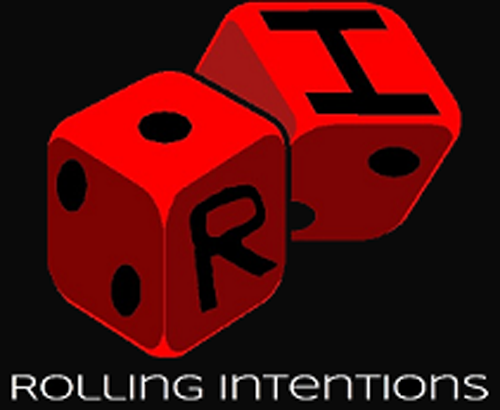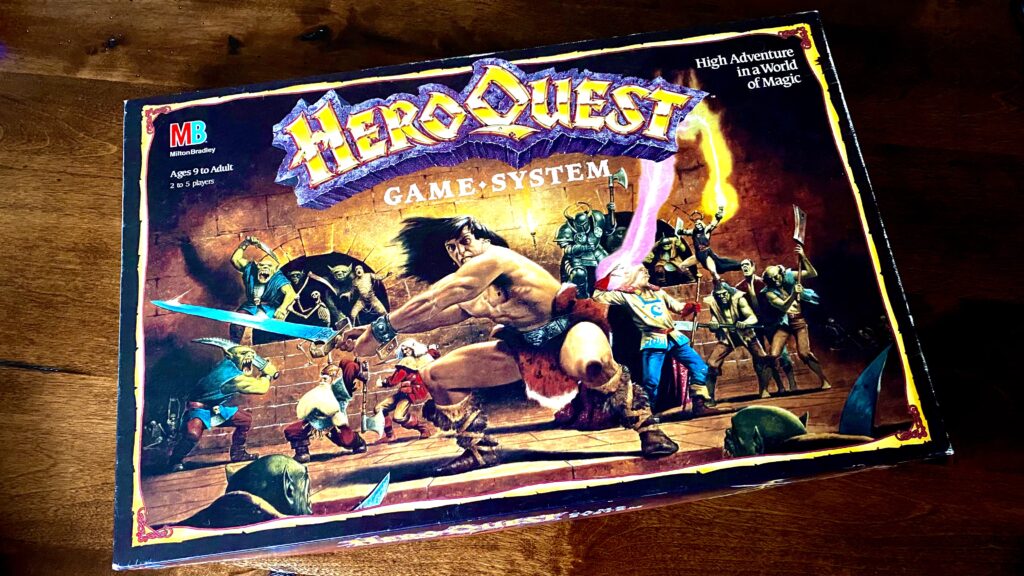
This week, Tuesday, September 22nd to be exact, a countdown clock hit 0:00, and Hasbro announced the return of Hero Quest! Every board game-centric social group on the web was then set alight, as if they were using a cel phone at the gas pumps. Controversy, nay contrarian douchery, as is the internet custom, has since been the order of the day. My purpose here, for those of you whom remain unaffiliated on the lines of battle, or for those who simply don’t comprehend the hub-ub as you zombie-scroll through your day is to answer the following (not-so) simple question:
“What is HERO QUEST? And why should I care that it has returned?”
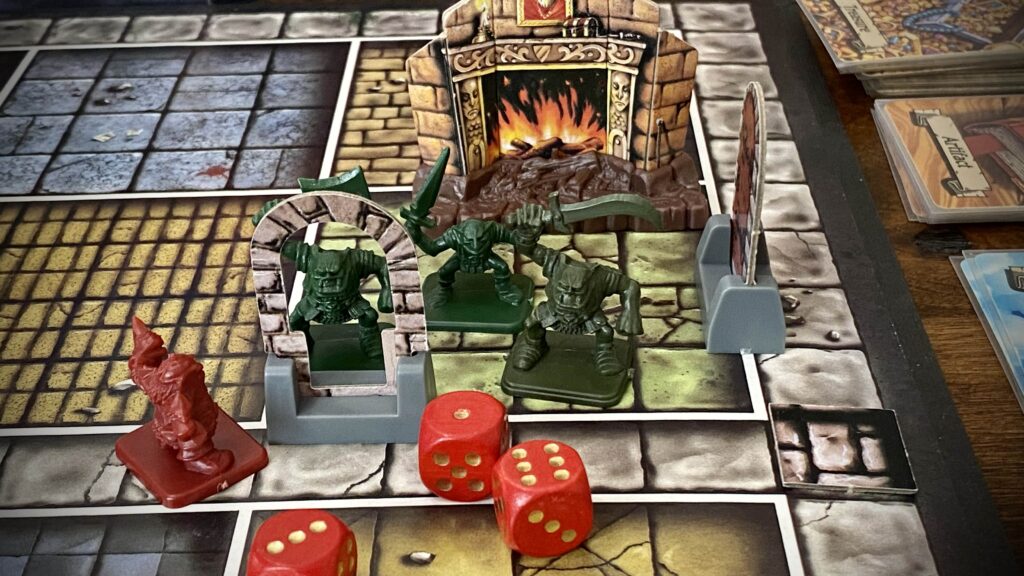
“What is HERO QUEST?”
First, the history lesson; About 30 years ago, Games Workshop wasn’t the global Empire it is today. Warhammer was a niche product, growing to be sure, but as with most of the hobbyist market, mainstream success remained elusive. Milton Bradley, meanwhile, had seen some success in working with wargame developers and pushing their mainstream boardgame racket into territory formerly dominated by grassroots companies and hardcore startups. Their Gamemaster series had proven successful in appealing to those looking for something a little deeper than Risk or Monopoly, and could be sold at a premium.
A partnership between the two was formed; Games Workshop would develop the games, with an eye to adding some complexity to appeal to the enthusiast market, while embracing design tenets that would shave off the harsher complexities to provide some mainstream appeal. MB could, in theory, get more complex, expandable board games into the mainstream, grabbing the teenage market as well as the family, and Games Workshop could get their specialty products into major toy and department stores. Win-win!
The union would produce several games over a relatively slim period (Including BATTLE MASTERS, and the UK only SPACE CRUSADE), but the most successful, by a huge margin, was the Sword and Sorcery dungeon crawler; HERO QUEST. Itself a sort of amalgam of an old tabletop RPG published by Chaosium inc (and Games Workshop in the UK), designed by a small team within Milton Bradley UK (led by designer Stephen Baker) and further developed and produced by Games Workshop. It hit UK shelves in 1989, accompanied by a big multi-media push, and by Christmas of 1990, it was all over North American toy-stores, on the back of pretty much every Marvel Comic, and advertised on Saturday morning TV.
There were a few expansions released by Milton Bradley in North America, but after a year or two, copies were plentiful, deeply discounted, and HERO QUEST had run its course in North America. In the UK meanwhile, Games Workshop didn’t have the same sales concerns, and published several more expansions, and even a bizarre ADVANCED HERO QUEST that could be combined with the original, featured new rules, a new enemy faction (Ratmen), and their now commonplace modular dungeon system. Most North American players have no idea this stuff even exists.
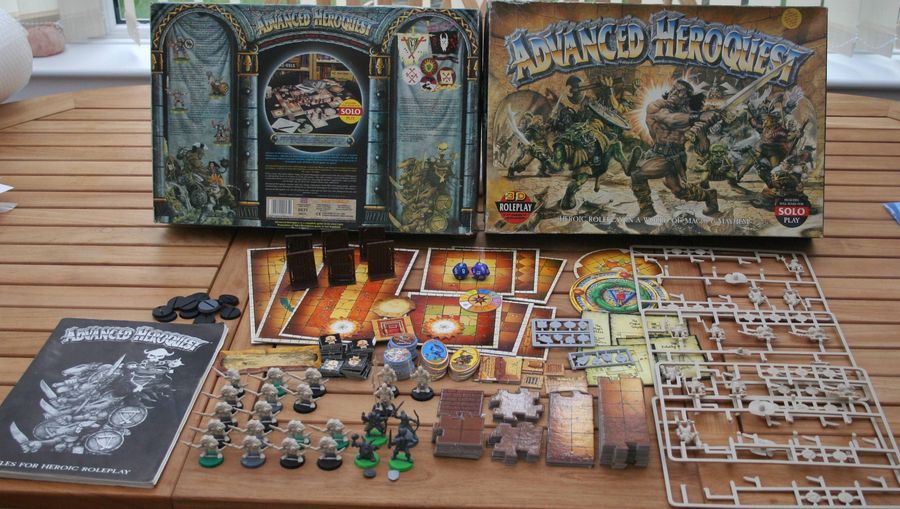
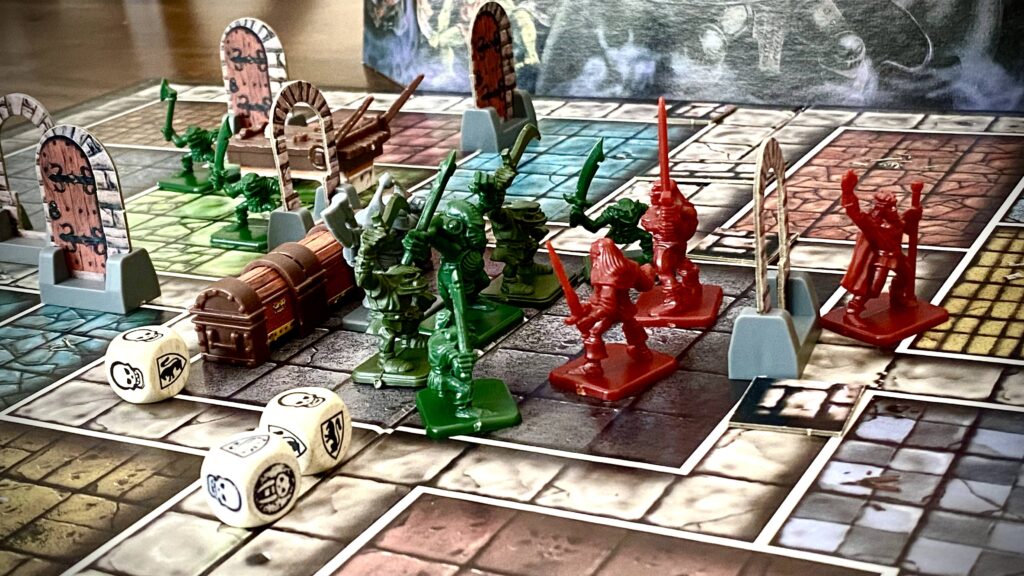
“So, is HERO QUEST any good?”
The Good: Hero Quest is a dungeon crawl, You choose your character (Dwarf, Elf, Barbarian, or Wizard) and hit the catacombs to thwart the vile machinations of the evil wizard Zargon (or something). One player takes the role of the evil wizard, acting as dungeon master for the scenario, while up to four others are our dungeon divers. Right out of the gate, it has to be said that Hero Quest’s production values can only be described as “extravagant”. The tiny furniture, the wealth of Miniatures, the large board, the cards, and did I mention the tiny furniture? What the designers managed to do with some plastic and cardboard was well ahead of its time, and it looks absolutely fantastic when you’ve uncovered a good chunk of board. So it still looks great, but does it play well? Listen, it’s 30 years old, so there’s bound to be some cobwebs, but it gets a hell of a lot more right than wrong; it moves quickly without feeling breezy, but nor is it clunky or crunchy. Streamlined is the word I’d use. If you’re used to the intense card management and sprawling narrative of GLOOMHAVEN, I’ll tell you that Hero Quest is NOT that. Likewise if you’ve cut teeth on 21st century dungeon crawlers like MASSIVE DARKNESS from C’MON Games or SWORD & SORCERY from Ares Games, you’ll likely find that this is considerably less fiddly, with less than half of the gear cards, tokens, modular setups, box contents, and crunch of those games. For me, that works in its favor.
In HERO QUEST, much like in GLOOMHAVEN, you slowly uncover the board as your characters move through dank corridors and stroll through sealed doors. You never really know what’s going to lurk close by, and that sense of exploration and tension is wonderful and infectious. The ruleset is quick and easy, relying on dice rolls rather than management, but also requiring co-ordination and co-operation from your fellow players. It’s tough as nails, and the bad guys benefit from being controlled by a human player rather than relying on AI. If you get a rite-bastard to play as Zargon, you’ve got your work cut out for you. If you have a Zargon player who treats it more like a game of Dungeons and Dragons, and maybe takes it a little easy in the name of fun times, then you’ll have an absolute blast. The core game included a 14 Quest campaign in the box, which offered gold and equipment upgrades between sessions, and an especially devious Zargon (Zygote? Zygon?) can plan his own scenarios, or even entire campaigns with little more than graph paper, a pencil, and some imagination. As a toolset, HERO QUEST is versatile, and yet easy to learn, teach, and play. It’s an elegant design, cobwebs and all.
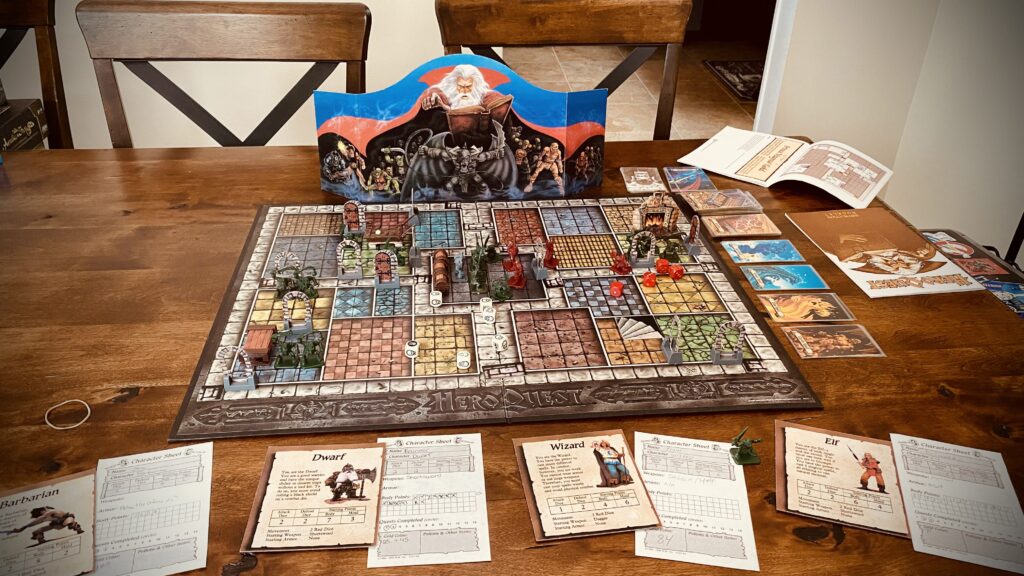
“So if it’s good, why do people say it’s bad?”
Hero Quest’s “toy store” origins are pretty obvious. Let’s get that out of the way. That simplicity of design is not going to compete for complexity with the likes of today’s dungeon crawlers. Sure, I think the complexities and the depth are just about perfect, but, and this is a huge but, HERO QUEST doesn’t scale, the difficulty doesn’t spike, it’s starts tough and stays tough. With one or two players, two orcs can ruin your day, even as the mighty barbarian. The randomness of the dice driven system also means you can go from bad ass to pin cushion in 5 seconds flat. To get the most out of HERO QUEST, you NEED the full five player complement. In the land of the modern dungeon diver, with their solo scenarios, sprawling setup, complex AI management, and crunchy mechanics HERO QUEST presents the opposite problem, you won’t get it to the table as often as you’d like, not because its a bloated table hog that takes a decade to set up and tear down, but because without four friends to dive with, it just isn’t all that good. Sure, there’s a huge community of support out there, with decades worth of scenarios, AI rules, scaling mechanics, and house rules that make just about any game of HERO QUEST a do-able thing, but right out of the box? It’s not so simple.
So if you’re on the hunt for a vintage version of HERO QUEST, lets get into some more bad news; There are multiple versions across several regions, and box contents vary from one to another. So look carefully at Ebay listings. Also worth mentioning; it looks gobsmacking, but all those minis are old school plastic, and it’s pretty hard to track down a copy where the brittle plastic hasn’t suffered a break or three. If you do decide to hit Ebay, make sure you pay attention closely before you pull the trigger.
So there’s your intro to HERO QUEST, stuff of legend, dungeon explorer and builder of bridges between unwashed casuals and proper board gaming. Great production, a simple, fun combat system that will undoubtedly appeal to anyone looking for a more “old school” experience. It’s not overdesigned or overproduced, and it’s easy to learn. Park the modern gaming pretenses, stock your table with fun-seeking dungeon divers, and you’ll definitely have a laugh or even several. Is it worth the extravagant after market cost? Personally, I’d say hell yes. HERO QUEST is an engine, an imaginative soul could definitely cook up something amazing with these easy to use tools. Above all else, it just puts a huge smile on faces, and is fun as hell with five players, and that my friends, is the GREATEST thing about HERO QUEST!
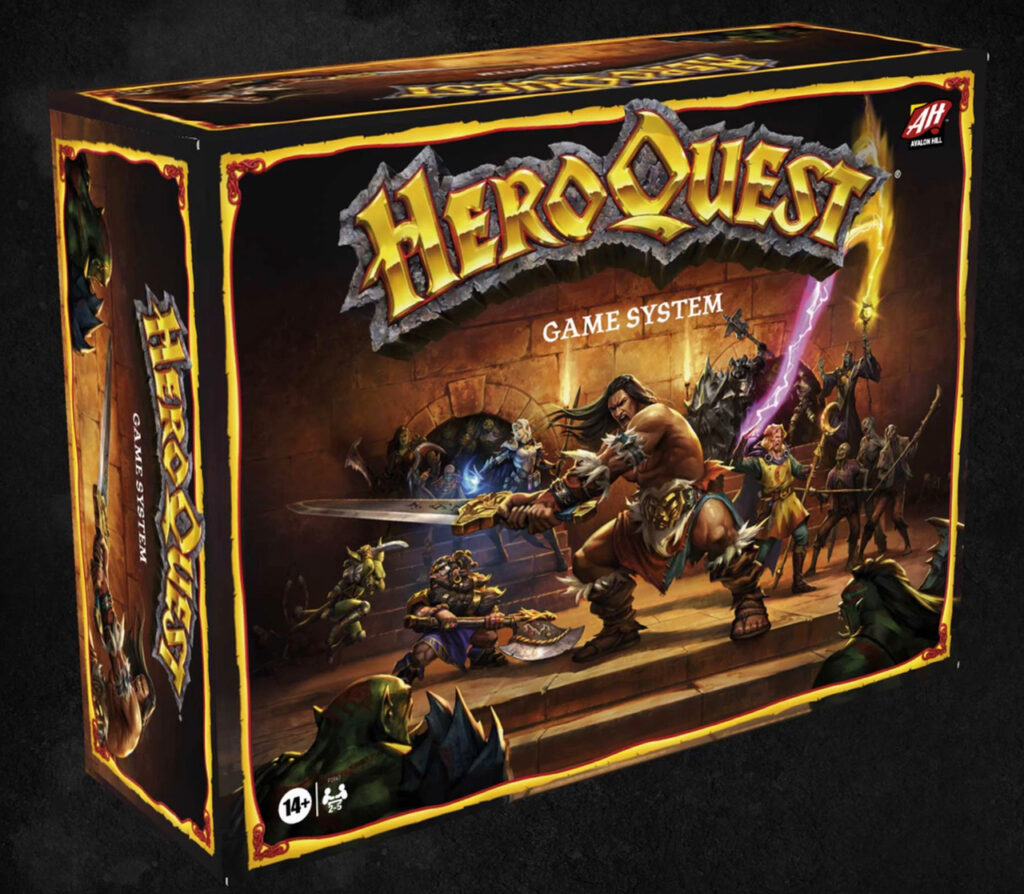
“So should I care that HERO QUEST is back?”
Honestly? That’s a difficult question to answer. For those who haven’t seen; HERO QUEST has come back courtesy of Hasbro Pulse via their HasLab Crowdfunding initiative (the same service that allowed Star Wars fans to buy Jabba’s Sail Barge for their 4 inch action figures).
There are two flavors available, the core game at 99.99 USD, or a deluxe edition at 149.99 USD that includes the two original North American expansions and an additional hero. That price is, in spite of some rumblings, hella sweet.
What’s different? The minis have been updated, and look stylish and detailed. Some have already taken the art style to task as being derivative or too cartoony, but that’s a question of taste really. Ultimately, they’re a decent evolution of what was in the old game. Also included is fully modeled 3D furniture that looks absolutely beautiful and stands in for the old game’s cardboard offerings.
Mechanically, they’ve hinted at a few “quality of life” improvements, but the game largely looks to remain, HERO QUEST (evil bunny of doom dice and all). If there are no Solo or straight co-op rules in the box, I’ll develop em myself and throw them up on BGG. If the game doesn’t scale for lower player counts, someone will figure it out.
How do you feel about classic games? Rest assured, HERO QUEST is MOST DEFINITELY deserving of that moniker, and it deserves a place in any dungeon crawl fan’s collection. It’s quick, easy, fun, and gorgeously produced. If you don’t own a copy, you should, and that’s really all there is to say.
If you DO already own the classic game, it gets a little more muddy. You have to ask yourself, “How much do I love HERO QUEST?” For me, it was a no-brainer, even with the extra $135 in shipping it cost me to get it to Canuckistahn. That no-brainer is fueled by a deep love fed by 30 years of fun memories, and a few recent five player games that were absolutely joyous times at the table.
All that said, There’s just not enough info out there as of yet to determine how deeply the “quality of life” changes run. Has the system itself been altered? (Did they remove the “roll to move” mechanic?) The only confirmed change is adding the common weapons cards from the original Euro version in place of the US release’s “Armory” box insert.
I’m sure to be talking more about the new edition as more details come to light. Stay tuned!
